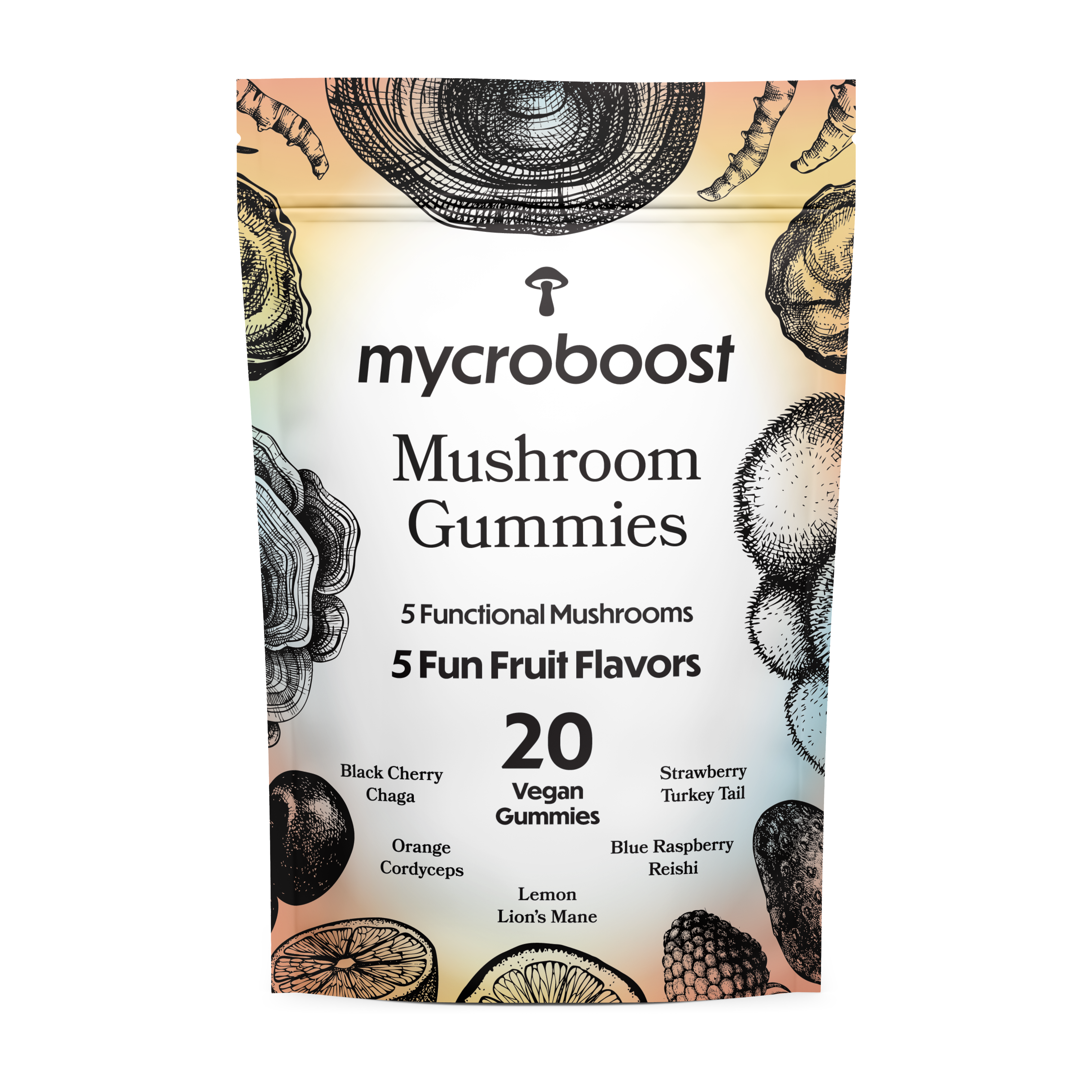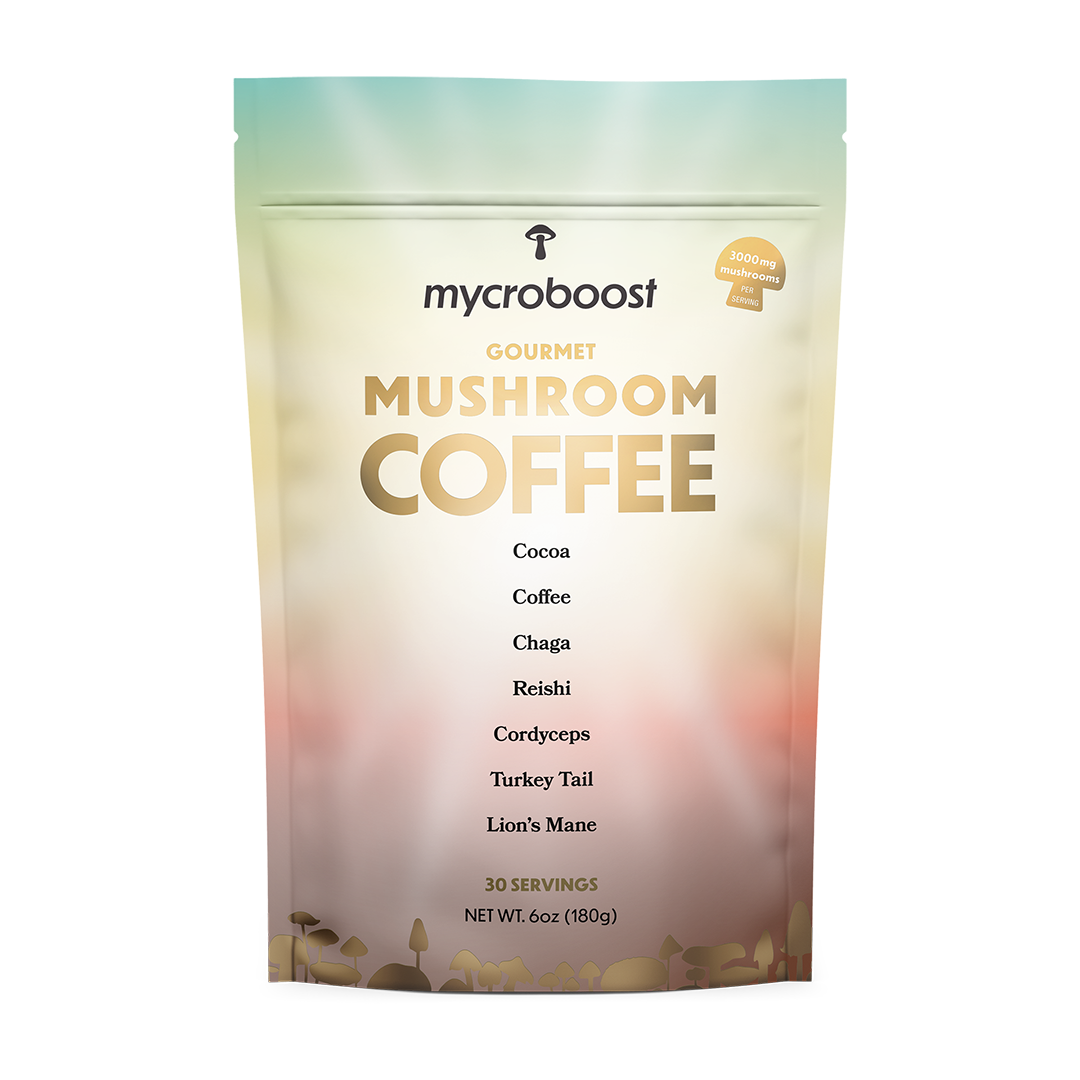Mycelium, the underground network of fungal threads, has been gaining attention in recent years for its incredible healing properties. Often overshadowed by the more visible fruiting bodies of mushrooms, mycelium plays a crucial role in the ecosystem and human health.
From fighting off pathogens to promoting regenerative growth, mycelium has many potential applications in medicine, agriculture, and beyond.
In this article, we will delve into the fascinating world of mycelium and explore its healing properties, shedding light on the benefits and potential of this often-overlooked organism. Join us as we go beyond the capsule and discover the wonders of mycelium.
The Healing Properties of Mycelium
Mycelium, the thread-like vegetative part of fungi, has garnered much attention recently due to its remarkable potential to support human health. This intricate network of hyphae plays a crucial role in the decomposition of organic matter and boasts numerous healing properties.
Anti-Inflammatory and Immune-Boosting Properties
Research has shown that mycelium possesses strong anti-inflammatory and immune-enhancing properties. The active compounds in mycelium, such as beta-glucans, have been found to modulate the immune system, thereby helping the body maintain a healthy immune response. These compounds have also been shown to reduce inflammation, which can help alleviate symptoms of various chronic inflammatory conditions, such as arthritis and inflammatory bowel disease.
Potential Treatment for Mental Health Conditions
Mycelium has also shown promise in supporting mental health. Recent studies have explored the potential use of psilocybin, the active compound in psychedelic mushrooms, to treat mental health disorders like depression and anxiety. While psilocybin is derived from the fruiting bodies of certain mushrooms, its production is closely linked to the complex mycelial network.
Preliminary findings suggest that psilocybin, when administered under controlled conditions, can lead to long-lasting improvements in mood and anxiety levels. Moreover, it is believed to stimulate neurogenesis, or the formation of new neural connections, potentially aiding in treating various neurological disorders.
Fighting Infections
Mycelium has also been found to possess antimicrobial properties, which could help the body fight off infections. Some species of fungi produce compounds called antimycotics, which can inhibit the growth of harmful bacteria and fungi.
These natural antimicrobial agents can be harnessed from mycelium, offering a potential alternative to traditional antibiotics. This is particularly relevant in increasing antibiotic resistance, as researchers constantly seek novel ways to combat infections.
Mycelium and Traditional Medicine
Traditional medicine has a rich history of tapping into the natural world for remedies and treatments. One such natural resource is mycelium, the filamentous root of fungi, which has long been used for its potential healing properties. This article will delve into the use of mycelium and mushrooms in traditional healing practices, particularly focusing on their role in traditional Chinese medicine.
Traditional Chinese Medicine and Mycelium
Traditional Chinese medicine (TCM) is a holistic healing system practiced for thousands of years. It seeks to balance the body’s vital energies, known as Qi, through various therapeutic methods, including herbal remedies, acupuncture, and dietary therapy. One notable component of TCM is its use of mycelium and mushrooms for their medicinal properties.
Reishi Mushroom (Ganoderma Lucidum)
Reishi mushroom, known as Lingzhi in Chinese, stands out among medicinal mushrooms. With a history of use spanning over 2,000 years, reishi is revered for its ability to promote longevity and overall well-being. TCM practitioners have long prescribed reishi for various ailments, including respiratory issues, liver disorders, and immune system support.
Cordyceps (Cordyceps Sinensis)
Another powerful medicinal fungus used in TCM is Cordyceps, the caterpillar fungus. This unique fungus parasitizes caterpillars in the high-altitude regions of China and Tibet. Cordyceps has been traditionally used to enhance energy, stamina, and sexual function and to support kidney and lung health. Recent research also suggests that Cordyceps may have the potential to manage inflammation and improve athletic performance.
Turkey Tail (Trametes Versicolor)
Turkey tail is a colorful mushroom that grows on decaying logs worldwide. In TCM, turkey tail has been used to support the immune system and promote overall health. Modern research has also shown that this mushroom contains polysaccharopeptides, which may have cancer-fighting properties and stimulate immune function.
Mycelium in Other Traditional Healing Practices
The use of mycelium and mushrooms isn’t limited to traditional Chinese medicine. Indigenous cultures worldwide have harnessed fungi’s power for their healing properties.
For example, the Siberian and Russian people have used the Chaga mushroom (Inonotus obliquus) for centuries to boost immunity and improve overall health. Similarly, the Mazatec people of Mexico have long used the psychoactive Psilocybe mushrooms in their spiritual and healing practices.
Mycelium and Modern Medicine
The world of fungi has long been a source of fascination and mystery for scientists and laypeople. Among the vast array of fungal species, mycelium, the vegetative part of a fungus consisting of a network of thread-like structures called hyphae, has garnered significant attention for its promising role in modern medicine. Recent research and clinical trials have begun to unveil the untapped potential of mycelium-based treatments for various conditions, including cancer, paving the way for groundbreaking discoveries in healthcare.
Revolutionizing Cancer Treatment
One of mycelium-based medicine’s most significant research areas is its potential use in cancer treatment. Mycelium extracts from specific mushroom species, such as Turkey Tail (Trametes versicolor), have been found to contain polysaccharopeptides (PSPs) and polysaccharide-K (PSK), which are known for their immune-boosting and anti-tumor properties.
Clinical trials conducted in Japan and China have shown promising results in using mycelium-derived PSK as an adjuvant therapy for various types of cancer, including gastric, colorectal, and breast cancer. PSK has been found to improve patient’s survival rates, reduce the risk of cancer recurrence, and enhance the effectiveness of chemotherapy and radiation treatments. The U.S. Food and Drug Administration (FDA) has also approved a clinical trial investigating the effects of Turkey Tail extract on breast cancer patients, underscoring its potential in cancer therapy.
Beyond Cancer: Addressing Other Health Conditions
Mycelium’s therapeutic potential is not limited to cancer treatment. Other areas of medical research have also benefited from studying fungal extracts. For instance, Lion’s Mane (Hericium Erinaceus) is a mushroom species known for its neuroprotective properties. Research has demonstrated that compounds extracted from Lion’s Mane mycelium can stimulate the production of nerve growth factor (NGF). Which is essential for maintaining healthy neurons and cognitive function. This has led to ongoing studies on the potential of mycelium-based treatments for neurodegenerative diseases such as Alzheimer’s and Parkinson’s.
Additionally, mycelium extracts from Reishi (Ganoderma lucidum) mushrooms have been found to possess anti-inflammatory and immunomodulatory properties. Making them a promising candidate for treating autoimmune disorders, allergies, and inflammation-related conditions.
Challenges and Future Directions
Despite the promising findings, mycelium-based medicine is still a relatively new field. And further research is needed to understand its healing potential fully. Challenges in standardizing mycelium extracts, determining optimal dosages, and understanding potential interactions with other medications must be addressed. Moreover, scientists are working to identify the specific components in mycelium responsible for the observed therapeutic effects. Which could lead to more targeted treatments.
As research continues, it is clear that mycelium holds immense potential to revolutionize modern medicine. With ongoing studies and clinical trials, we may soon witness a new era of healing. Where fungal extracts become an integral part of our healthcare system. Offering hope and relief to millions of patients worldwide.
Conclusion
In conclusion, mycelium is a fascinating and versatile organism with many potential applications in medicine, agriculture, and beyond. From fighting off infections to promoting mental health. Mycelium and mushrooms have been used for centuries in traditional healing practices and are now gaining recognition in modern medicine.
At Mycroboost, we harness the power of mycelium to create sustainable and innovative solutions. And it is just one example of the exciting possibilities of this often-overlooked organism. As research on mycelium continues to advance, we can expect to see even more breakthroughs and discoveries in the years to come.










